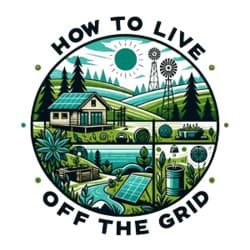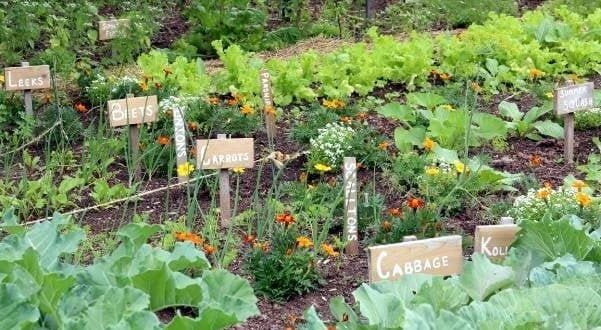What Does It Mean to Be Self Sufficient?
Self sufficient – sounds nice and all, but what does it actually mean in everyday life? Let’s break it down in simple terms using some common questions.

What is self sufficient?
Being self-sufficient just means being able to provide the essentials for yourself and your family, without having to rely heavily on stores, the government or utilities for everything. It’s about using your skills and available resources to take care of your own needs as much as possible.
For example, you rely less on grocery stores and more on growing your own food. Pretty straightforward right?
Self sufficient definition
The dictionary definition of self-sufficient is: being able to supply your own needs without requiring outside help.
So someone who is self sufficient can get by just fine using what they produce or procure for themselves. They don’t need constant handouts from organizations or assistance to survive.
When it comes to an individual being self-sufficient, it means:
- Having useful skills to make, build, cook and repair things you need
- Taking responsibility for meeting your own core needs
- Not depending excessively on institutions or systems outside your control
- Finding empowerment in being able to provide for yourself
For example, you know how to grow basic food, make repairs around the house, cook healthy meals, balance your budget – the skills needed for meeting day-to-day needs without too much outside help.
What does self sufficient mean?
Self sufficient means:
✅ Having the knowledge and hands-on skills to thrive independently ✅ Relying on your own capabilities to provide the essentials ✅ Achieving freedom through self-reliance rather than dependency
It’s about taking care of your own needs realistically over the long haul, using what you can produce yourself.
Self sufficient meaning
The deeper meaning behind self-sufficiency includes:
🔸 Self-determination over your own life 🔸 Resilience from not depending on unstable systems
🔸 Empowerment through using your skills and resources 🔸 Responsibility for your own livelihood
So it’s more than just providing for yourself – it’s taking control over your own path.
Self-sufficient backyard
Even a small backyard can contribute to self-sufficiency through:
- A vegetable garden
- Chickens for eggs
- Beekeeping for honey
- Fruit trees/berries
- Rainwater harvesting
With the right setup, a standard backyard can generate a decent amount of food and reduce household expenses.
How to be self sufficient
Becoming more self-sufficient takes:
- Learning useful hands-on skills like gardening, beekeeping, home repairs
- Meeting core needs realistically based on your situation
- Living within your means and wasting less
- Making choices aligned with self-reliance rather than dependency
It’s an ongoing process of growth in knowledge, skills and self-direction.
Self sufficient-homestead
A self-sufficient homestead produces much of what the inhabitants need on a daily basis themselves, including:
- Food from the land and animals
- Water from rain catchment and wells
- Power from solar, wind or hydropower
- Income from home businesses
With some acreage and the right setup, homesteads can achieve a high level of self-sufficiency.
Define self sufficient
In a nutshell, self-sufficient means:
- Relying on your own skills, resources and community
- Taking responsibility for providing your own essentials
- Achieving freedom through self-reliance
- Using local, eco-friendly resources to meet needs
Q: What’s this whole self sufficient lifestyle thing about anyway?
A: It’s basically about providing for more of your own needs directly instead of relying on stores for everything. Learning to grow food, make stuff, and become more resourceful.
Q: That sounds hard…is it possible to actually do?
A: It’s definitely challenging, but absolutely doable! The key is to start small with just a few projects that interest you and go from there. Even little steps add up over time.
Q: Hmm okay, like what kinds of small steps?
A: Easy ones to begin with are planting some vegetables or herbs in pots, learning to preserve foods, raising chickens for eggs, making your own cleaning products, fixing stuff in your home instead of replacing it.
Q: I guess that doesn’t seem too bad. What do people get out of this lifestyle?
A: More independence, money saved from doing stuff yourself, sustainability, satisfaction of taking care of your own needs. It leads to a more resilient and empowered life overall.
Q: Would I have to move to the middle of nowhere though?
A: Nah, you can be self-sufficient in the suburbs or even cities! You just get creative with the space you have by maximizing it for capturing resources. Many urban homesteaders out there.
Q: What would you say are the hardest parts about it?
A: Learning all the new skills involved takes time. It also means way more work maintaining stuff versus modern convenience. You may need to trade off free time.
Q: Is it one of those things that sounds cool but isn’t realistic?
A: It’s definitely realistic if you start small and stay motivated as you build knowledge. And there are lots of resources and people out there to learn from now.



